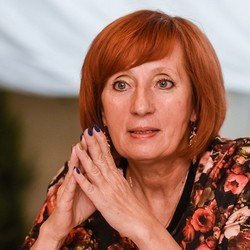Number of businesses for sale in Kazan up by third
What entrepreneurs in the Tatarstan capital went over the coronacrisis the worst
Kazan turned out in Russia’s general trend — amid the coronavirus pandemic, the number of entrepreneurs who decided to sell their business increased by a third. The amount of such offers rose by 35% in the Tatarstan capital over the year as well as in Russia on average. However, Ufa, Samara and Voronezh went through the crisis worse — here the number of ready businesses for sale almost doubled, and mainly hotels, offices and amusement facilities were sold. Realnoe Vremya has found out the state of affairs in the Kazan market and what establishments our businesspeople want to get rid of.
Fewer hotels sold
There are 35% more ready businesses for sale in Kazan at this moment than a year ago: 706 offers versus 520 on one of the biggest free advertisement websites. Like last July, mainly service establishments are sold. However, positive dynamics are observed in some segments.
So accommodation facilities or hotels are already sold less than last summer. The category Ready Business has just seven lots. President of the Association of Hoteliers Gulnara Safina explained that it was tougher for the sector to bounce back after anti-COVID-19 restrictions and coronacrisis consequences last July. At that moment, hoteliers were just “getting out of this situation” and were among the most affected businesspeople:

According to Gulnara Safina, now the occupancy rate (and revenue) is going back to the level of 2019, which is about 60%. Nevertheless, it is early to say the problem has been solved: “We have felt some stability, but the third wave has begun. While not airports, the metro and other transport but restaurants and hotels are considered the hotbed of the disease. She assures us that one cannot say hotels are sold en masse:
“Some facilities are on sale for years. It is can be some non-core assets, and they are ready to be sold in case a good price is offered. This business is quite hard to sell. Hotel business in itself is not profitable: the profitability is 3-5%.”
“Many have already generated new debts in addition to their accumulated debts”
The catering industry has a reverse tendency: there are 25,6% more businesses on sale in this category than a year ago. 93 establishments against 74 are sold. As Executive Director of the Association of Restaurateurs and Hoteliers of Kazan and Tatarstan Galina Sharafutdinova explained, the growth is partly logical:

According to her, a food business isn’t profitable. Nowadays the average profitability is 10-12%. Some have 5-6%, others do 15-18%. Moreover, feedstock prices keep growing:
“But we are not raising prices because we can totally lose consumer demand. So a food business nowadays is probably not so investment attractive. Also, it is technologically very complex.”
Sharafutdinova thinks that fast-food chains remain the most profitable food projects: “The bigger a chain is, the bigger possibilities of optimising processes (logistics, stock, factory kitchen), thus increasing their profitability.”
“Nobody will sell a well-oiled business”
Director General of Reagentsvo realty agency Yury Chikirov partly agrees with this. He noted that any business depends on external factors and now the fate of any enterprise depends on how its owner will address challenges of the pandemic:

The expert considers, that demand for some sectors changed in rental areas. Cafes and restaurants aren’t popular, restaurants are becoming smaller or being sold. “There is an example when somebody opened a bit out of time, at the beginning of the first wave of the pandemic and is now selling the business. Moreover, they claim everything is running smoothly, it’s alright. “Why are you selling it?” “Impossible to agree with the owner.” There are a lot of internal factors that need to be analysed,” he stressed.
As for services, Chikirov thinks that professionals are often hunted here: “People always go to work with a specialist, even during the pandemic. This is one of the most stress-resistant spheres. Staff determines everything. All private organisations linked with medicine and doing tests are also at advantage now.
It is Klondike. There are applications to purchase very expensive facilities. Some are repurposing their assets to open polyclinics, medical centres,” Chikirov noted.
As for negative tendencies, the expert singled out the activation of creators of Ponzi schemes. Many become their victims during a crisis. In conclusion, the interlocutor of the newspaper reminded us of the favourite expression of our tycoons: “If you aren’t an IT company, you are a dead company.” Those who didn’t readjust will gradually leave the market. And nobody will sell a well-oiled business. There must be a serious foundation for sale,” he said.